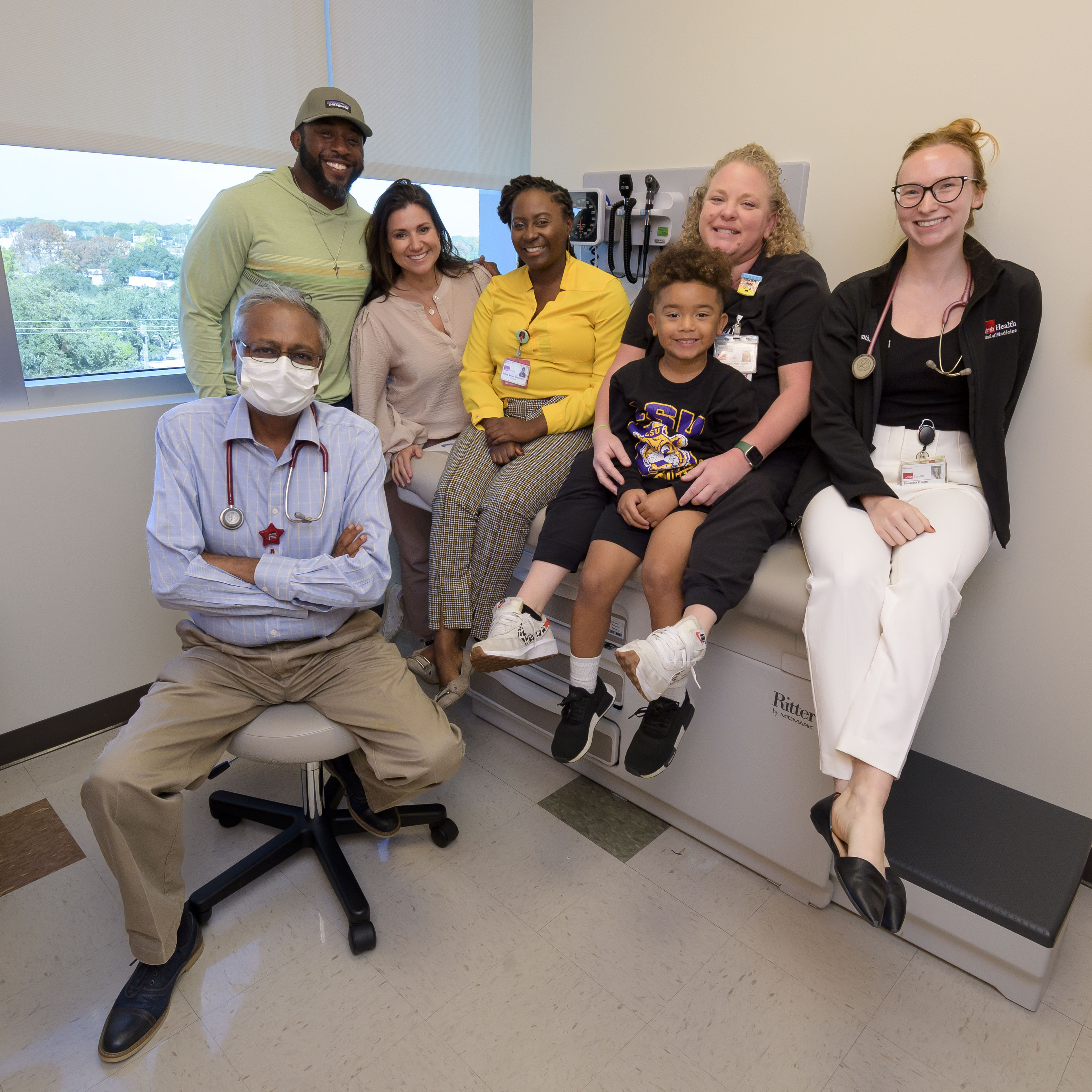Facing a rare, currently incurable kidney disorder, five-year-old Olin Lewis and his family travel more than 51 miles one way—from Katy to Clear Lake—each time he has an appointment with his pediatric nephrology care team at the University of Texas Medical Branch.
March is national kidney month and UTMB has a team of expertly trained clinicians ready to help keep these vital organs healthy and strong in patients just like Olin.
Diagnosed with Focal Segmental Glomerular Sclerosis, Olin takes a variety of medications to keep his kidneys healthy, and he does daily, at-home urine tests every morning to ensure his protein levels are OK. It’s a rare type of kidney disease that causes scarring in the kidneys and can make it difficult for kidneys to filter waste, potentially leading to kidney failure.
“The problem with kidney disease is it’s very silent,” said UTMB’s Dr. Shivaiah Balachandra, physician, associate professor and director of Pediatric Nephrology . “it’s important for them to keep up their appointments and come for a very close follow-up very frequently.”
A team of nurses and medical professionals follow Olin closely with multiple appointments a year, and they are in regular contact with Olin’s parents between visits to ensure everything is working as it should. 
Originally referred to a different care team outside of UTMB, Olin’s parents Jessica and Milton Lewis are pleased with the level of care their son is receiving with UTMB, noting that they are getting the super attentive medical staff they knew they needed and wanted for Olin.
“It’s been a scary journey,” said Jessica Lewis, “but we’ve leaned on our faith in God and this amazing team, and that’s made it so incredible.”
While there is currently no cure for Focal Segmental Glomerular Sclerosis, that doesn’t mean all hope is lost.
“There’s hope for people who have chronic kidney disease, kidney disorders,” said Ashley Moses, a UTMB nurse practitioner on Olin’s care team. “A lot of people think it’s the end of the road for them when they’re diagnosed with these things, but there are treatments and ways to slow the progression of chronic kidney disease.”